
Golda Meir, originally named Goldie Mabovitch, was far more than just a politician; she was a true **force of nature** whose impact resonated throughout history. Born in **Kiev**, she faced numerous challenges in her early life, yet her determination and resilience propelled her to remarkable heights. As the **first female Prime Minister** of Israel, Meir broke barriers and shattered glass ceilings in a male-dominated political landscape. Her journey from a modest upbringing to the pinnacle of political power is a testament to her unwavering spirit and dedication. Throughout her life, she played a pivotal role in shaping the **State of Israel**, advocating for its establishment and security during tumultuous times. Meir’s legacy is not only defined by her political achievements but also by her ability to inspire generations of women to pursue their dreams and make their voices heard. Let us delve deeper into the extraordinary life of this remarkable woman and examine the profound contributions she made to her country and the world.
Early Life: From Kiev to Milwaukee
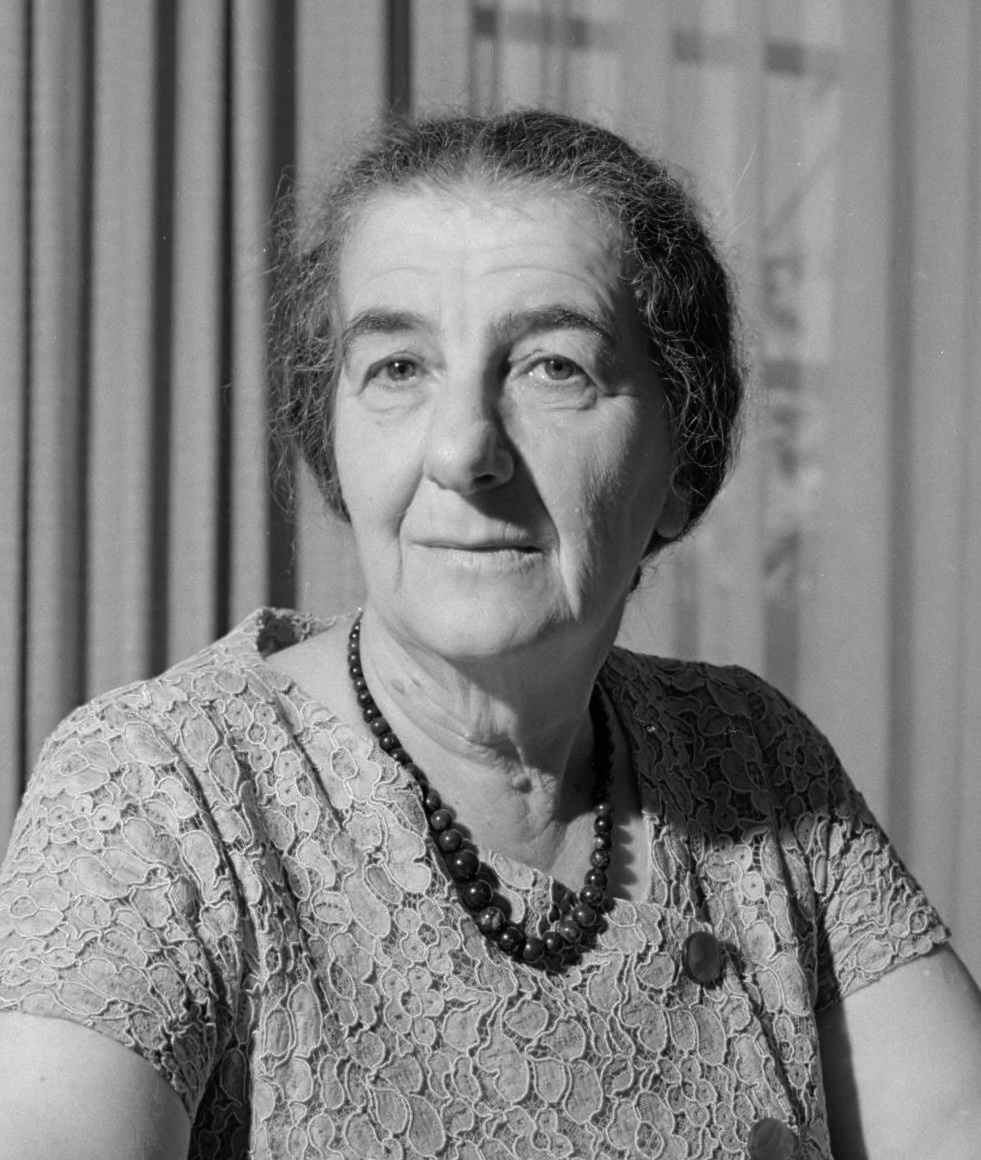
Roots in Ukraine
Golda Meir was born on **May 3, 1898**, in the vibrant city of **Kiev**, Ukraine, during a time of significant social and political upheaval. Growing up in a Jewish family, she faced numerous hardships, including anti-Semitic discrimination and economic struggles. These challenges ultimately compelled her family to seek a better life, leading them to immigrate to **Milwaukee, Wisconsin**, in 1906. This pivotal move not only marked a new chapter in their lives but also laid the groundwork for Golda’s future endeavors and her deep commitment to her community and heritage.
Education and Early Activism
Upon settling in Milwaukee, Golda pursued her education at the **Milwaukee Normal School**, which is now known as the University of Wisconsin-Milwaukee. It was during her time at this institution that she began to immerse herself in **Zionist activism**, a movement that aimed to establish a national homeland for the Jewish people in Palestine. Golda quickly emerged as a prominent leader within the **Milwaukee Labor Zionist Party**, where she passionately advocated for her beliefs and worked tirelessly to promote the welfare of her community. Her dedication to her heritage and her unwavering commitment to social justice were evident from a young age, setting the stage for her future as a formidable political figure and a key player in the establishment of the State of Israel.
Immigration to Palestine
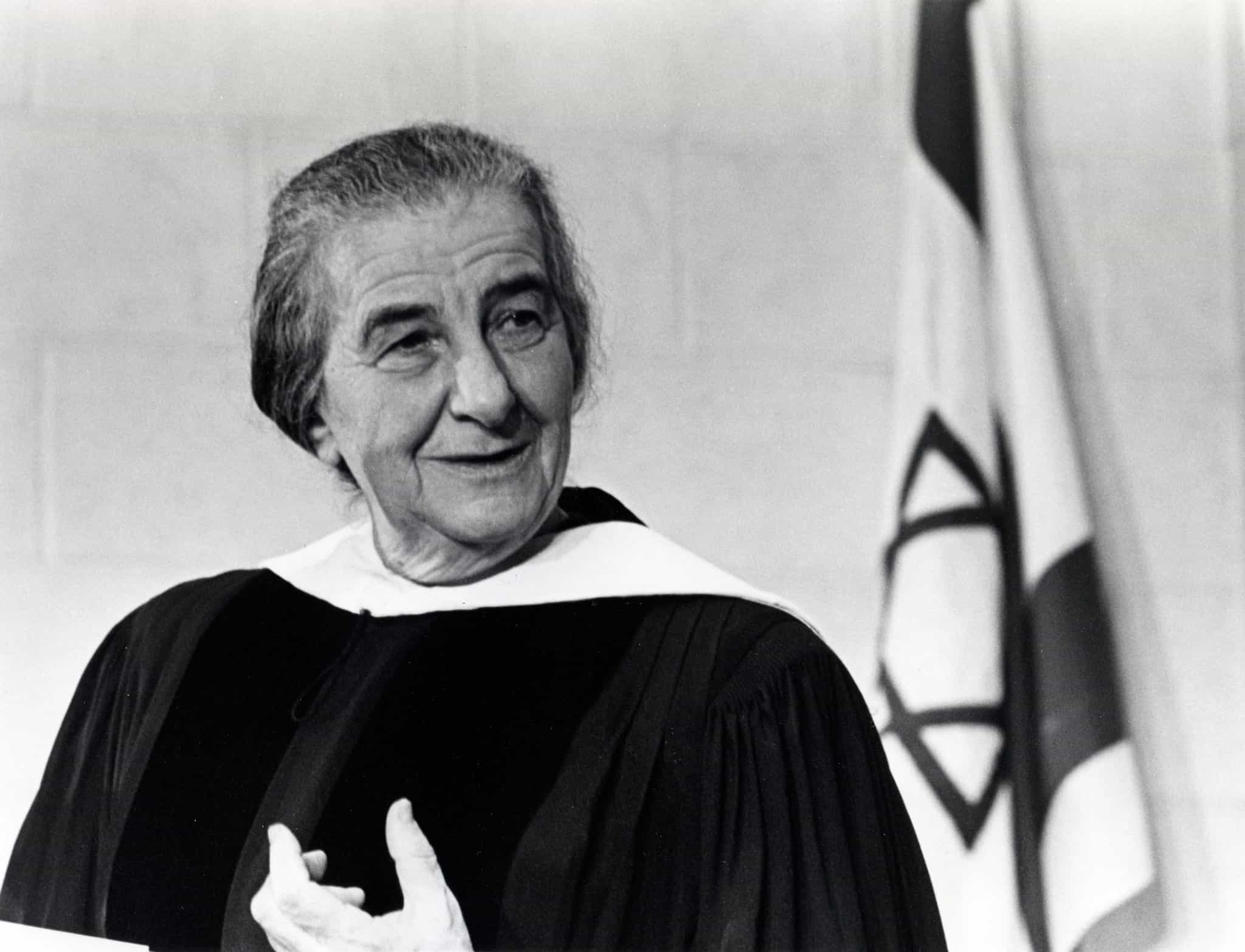
A New Beginning
In the year 1921, Golda Meir and her husband, Morris Myerson, made a life-changing decision that would alter the course of their lives forever. They chose to leave their home behind and immigrate to Palestine, a land that held the promise of a new beginning and the hope of establishing a Jewish homeland. Upon their arrival, they joined a kibbutz, a collective community that embodied their commitment to the ideals of cooperation, agriculture, and social equality. This move was not just a geographical shift; it represented their deep dedication to the Zionist movement and the vision of a thriving Jewish community in the region.
Leadership in the Kibbutz
Once settled in the kibbutz, Golda quickly emerged as a key figure within the community. Her natural leadership abilities and unwavering determination allowed her to take on significant responsibilities. She became a representative of the kibbutz in the Histadrut, the General Federation of Labour, where she advocated for workers’ rights and social justice. Golda’s influence grew as she took on various roles, including serving as the secretary of the Women’s Labour Council. In this capacity, she championed the rights and needs of women in the workforce, ensuring their voices were heard and their contributions recognized. Her dedication to the kibbutz and its values laid the groundwork for her future endeavors in leadership and politics, shaping her into a formidable force in the fight for a better society.
World War II: A Voice for Zionism
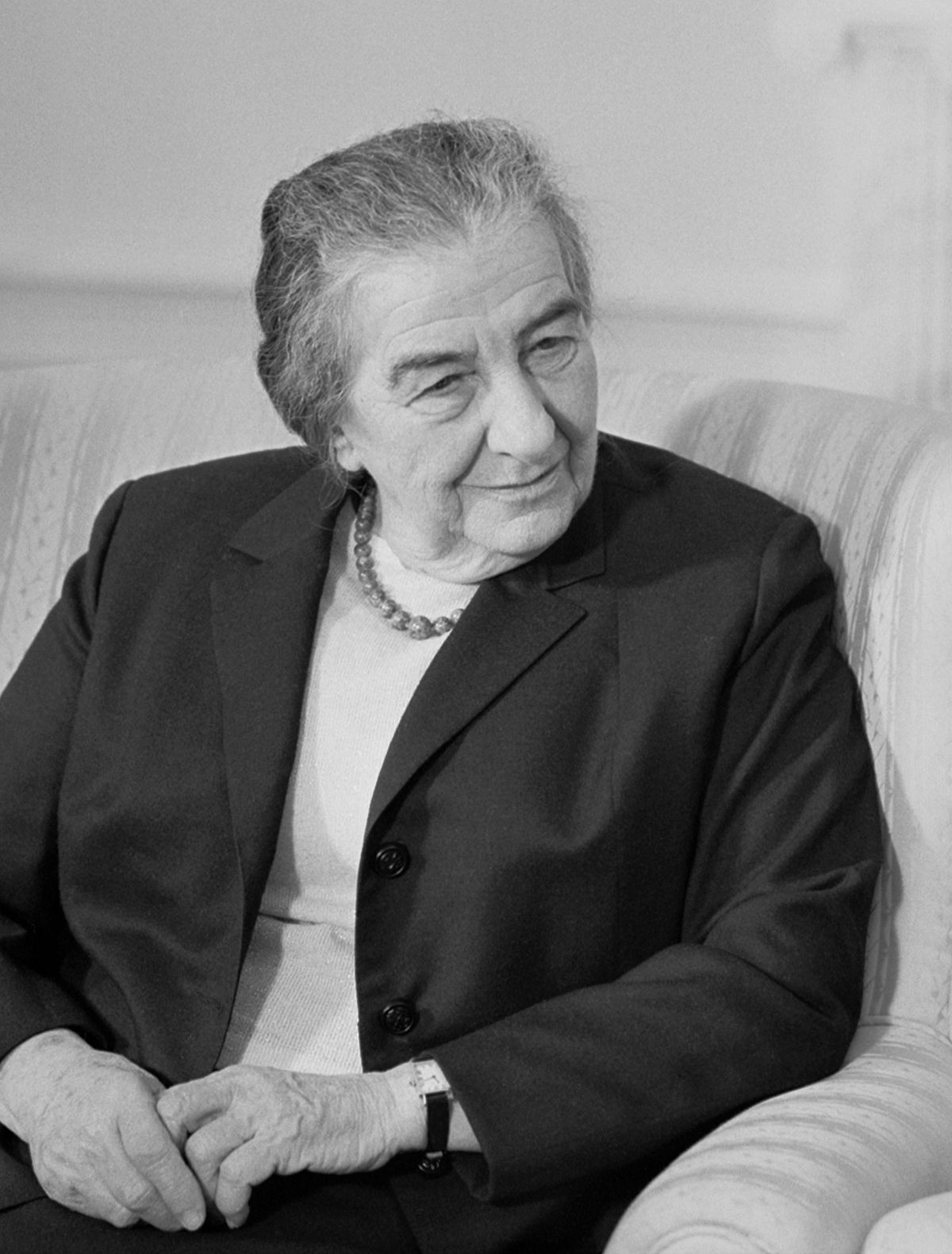
Advocacy During the War
Throughout the tumultuous years of **World War II**, Golda Meir emerged as a prominent and passionate advocate for the **Zionist cause**. Her efforts were characterized by tireless negotiations with British authorities, where she fervently championed the rights of Jewish people and the urgent need for the establishment of a Jewish state in Palestine. Golda’s unwavering commitment to her cause was evident as she worked diligently to garner support and recognition for the aspirations of the Jewish community during a time of great peril and uncertainty. Her advocacy not only highlighted the plight of Jews during the war but also laid the groundwork for future political developments in the region.
Signatory of Independence
On the historic date of **May 14, 1948**, Golda Meir played a crucial role in the founding of the State of Israel by signing the **Declaration of Independence**. This momentous act was not just a formality; it represented a significant turning point in the struggle for Jewish self-determination and sovereignty. By putting her signature on this pivotal document, Golda reaffirmed her deep commitment to the Jewish people and their right to establish a homeland after centuries of persecution and displacement. Her involvement in this foundational moment underscored her dedication to the cause and her belief in the necessity of a safe haven for Jews around the world.
Political Career: Rising to Power

Ministerial Roles
Golda was appointed as the **Minister to Moscow** shortly after independence and later served as the **Minister of Labour**. During her tenure, she implemented significant housing and infrastructure projects, supporting **unrestricted Jewish immigration** to Israel.
Becoming Prime Minister
In **1969**, following the death of Prime Minister **Levi Eshkol**, Golda became the **fourth Prime Minister** of Israel. She was the first woman to hold this position, breaking barriers and setting an example for future generations.
Challenges as Prime Minister
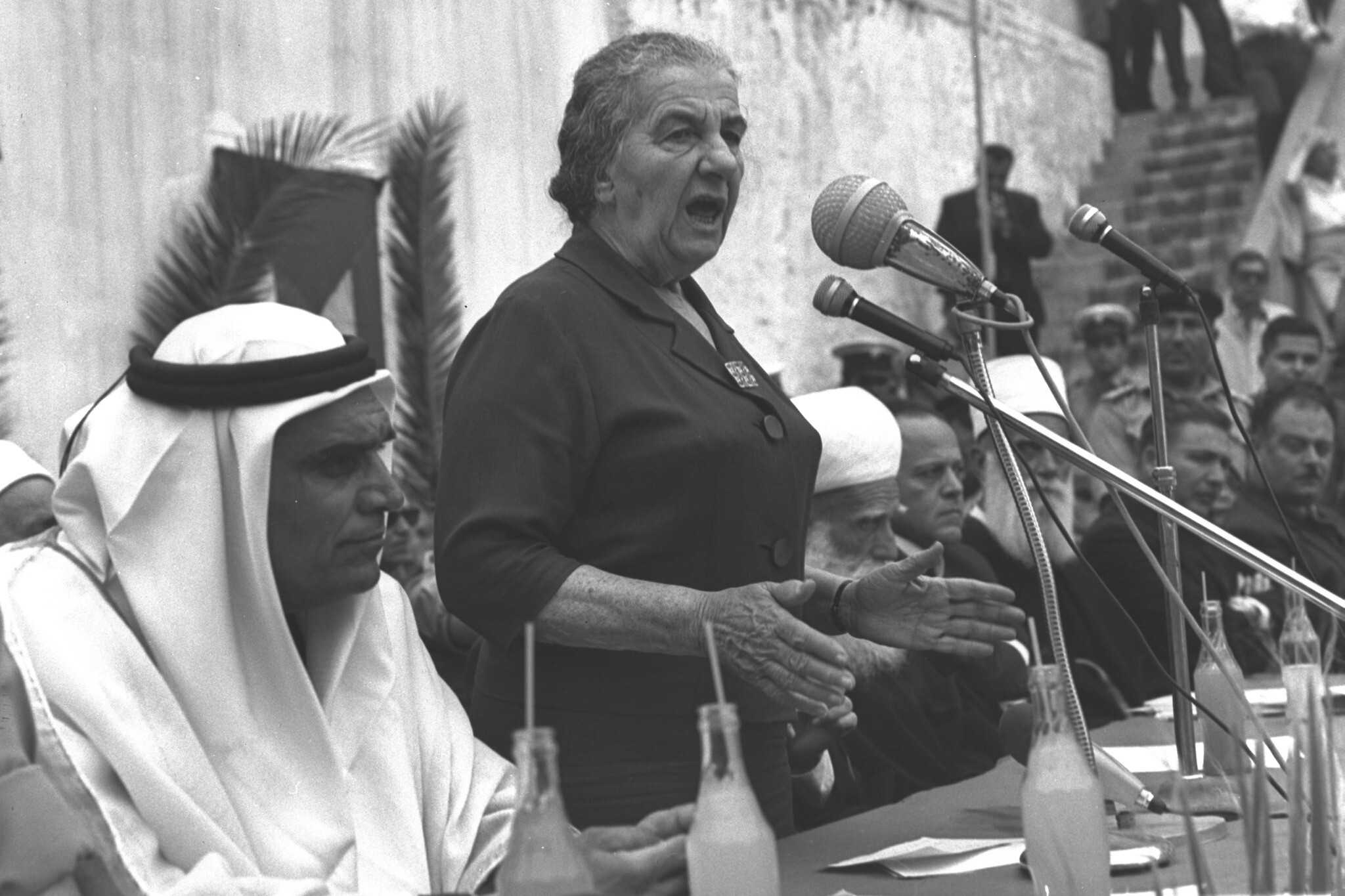
The Yom Kippur War
Golda’s leadership faced a significant test during the **Yom Kippur War** in October 1973. The surprise attack by Arab states caught Israel off guard, leading to a national crisis. How could a nation so prepared be so unprepared?
Diplomatic Efforts
Despite the challenges, Golda continued to push for **peace settlements** in the Middle East. She traveled extensively, meeting with world leaders like **Nicolae Ceaușescu** and **Pope Paul VI**, advocating for diplomatic solutions.
Legacy and Impact

Retirement and Continued Influence
After resigning in **1974**, Golda remained an influential figure in Israeli politics. Her autobiography, **My Life**, published in 1975, offered insights into her experiences and thoughts on leadership.
Enduring Legacy
Golda Meir passed away on **December 8, 1978**, but her legacy lives on. She is remembered not just as a politician but as a **pioneer** who paved the way for women in leadership roles across the globe.
Table: Key Milestones in Golda Meir’s Life
:max_bytes(150000):strip_icc()/GettyImages-5151118281-5c6ee0e946e0fb0001835cfb.jpg)
| Year | Milestone |
|---|---|
| 1898 | Born in Kiev, Ukraine |
| 1906 | Family immigrates to Milwaukee, Wisconsin |
| 1921 | Immigrates to Palestine |
| 1948 | Signs Israel’s Declaration of Independence |
| 1969 | Becomes Prime Minister of Israel |
| 1974 | Resigns as Prime Minister |
| 1978 | Passes away in Jerusalem |
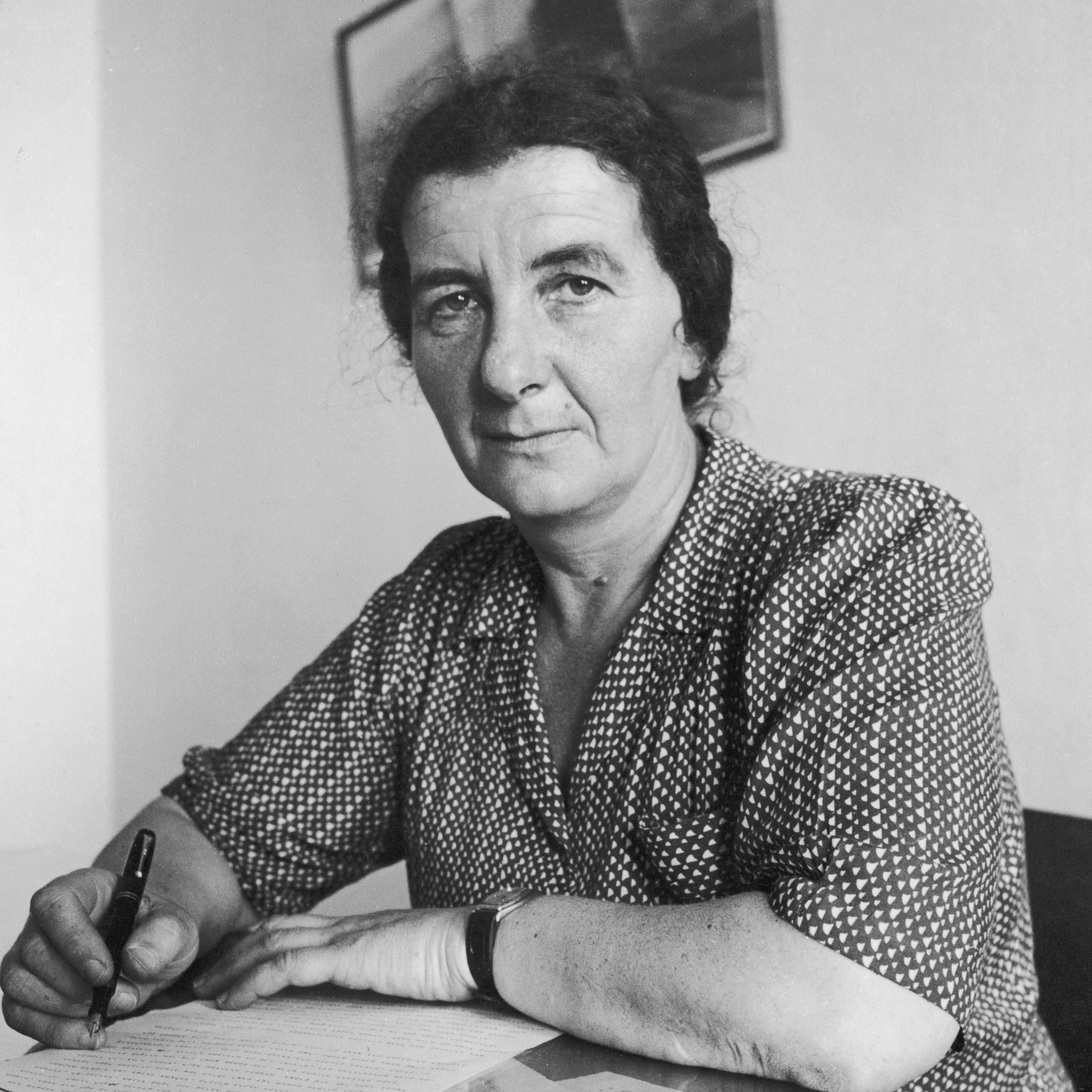
Golda Meir’s life is a testament to the power of **determination** and **leadership**. She faced numerous challenges but always stood firm in her beliefs. Her legacy continues to inspire countless individuals, especially women, to pursue their dreams and break barriers. So, the next time you think about leadership, remember Golda Meir—a true pioneer in every sense of the word.

